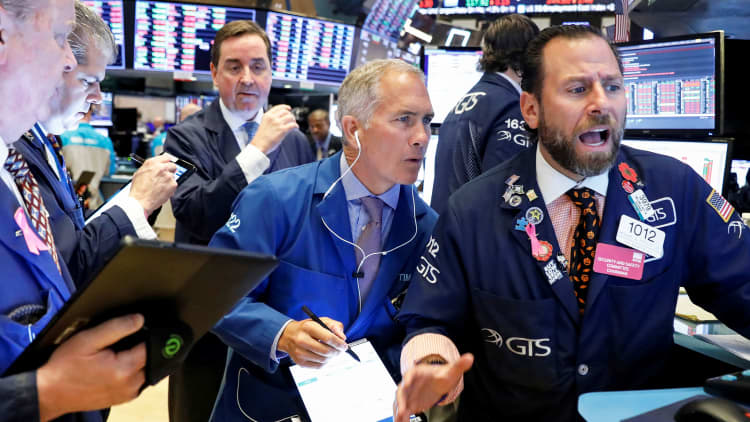Corporate leaders around the world apparently have not gotten the memo yet that a recession isn't happening anytime soon.
CEOs still consider the end to an expansion that has been the longest in U.S. history and has spread around the globe to be the biggest fear in 2020, according to the Conference Board's CEO Challenge survey released Thursday. This is the second year in a row for recession to take the lead.
"Just two years ago, global recession was barely on the minds of CEOs in our survey. One real risk of this recession mindset is that it can become a self-fulfilling prophecy," the survey's authors said in a summary.
The recession fears come amid "continued uncertainty around global trade, increasing competition, global political instability, and tightening labor markets — which, in themselves, can be significant restraints on business growth."
Those concerns persisted in 2019 as the U.S. and China continued their trade war and geopolitical issues such as Brexit and a toxic climate in Washington contributed to a volatile climate. Recession fears peaked in late summer as the bond market sent a strong signal that a recession was on its way in the next 12 months.
However, Federal Reserve interest rate cuts, a strong labor market and a buoyant consumer have helped quell those concerns — Goldman Sachs earlier this week issued a report saying the U.S. in particular has become fundamentally loss-prone to recessions.
Indeed, Conference Board officials said they expect the outlook to get better.
"The ongoing concerns about recession risk among business leaders reflect the slowing economy of the past year and the uncertainties about the outcome of the trade disputes and other policy concerns," Bart van Ark, chief economist at The Conference Board, said in a statement. "However, given a slightly better outlook for the global economy and an easing of trade tensions, we anticipate that a drumbeat of negative sentiment — which can become a self-fulling prophecy — can be avoided, and that we will see more confidence about business prospects in 2020."
Other worries
Respondents from all major regions except for Japan and Latin America rated a potential recession as the top risk, instead placing it second.
Economists have been warning about a likely slowdown, particularly in the U.S. where fiscal stimulus from the 2017 tax bill is expected to wear off. Still, the International Monetary Fund projects U.S. GDP to grow at a 1.9% rate in 2020, and global growth to clock in at 3.5%.

China joined Latin America in ranking trade concerns as their paramount concern. When the broader survey includes other C-suit executives along with CEOs, trade is No. 1 overall.
The U.S. and China have been locked in a nearly two-year tariff exchange that abated recently with a first-phase agreement that staves off further levies set to take effect. However, much work needs to be done to resolve remaining issues.
China CEOs expressed a high degree of worry about economic sanctions due to "the US government's more aggressive trade approach," according to the survey.
Other issues cited by the executives include a tight labor market. The U.S. unemployment rate currently stands at 3.5%, the lowest in more than 50 years, and there are 1.4 million more job openings than there are workers on the unemployment rolls.
"Regardless of a company's location, size, or industry sector, finding and keeping talent is the top internal stressor for CEOs and the C-suite in 2020," the report stated. "Demand for highly talented employees now exceeds supply in most mature economies and, as a result, job openings are more difficult to fill, while in some regions, labor costs are accelerating."
The survey did point to the tight labor market and expected upward pressure on wages to be boosts to growth, while loss of consumer confidence and a decrease in spending as downside risks.


